Post
A catch
Save a catch to start your fishing logbook. You will be able to to share it with the community if yo want!
A fishing trip
Post an ad to go fishing with other fishermen
Save a catch to start your fishing logbook. You will be able to to share it with the community if yo want!
Post an ad to go fishing with other fishermen
Share a thought, a question with the community
My favorite cities
×Join our 1290 fishermen and our 8 cofishermen in East-Putney in Greater London. The fishing forecast is currently 4.4. The most caught fishes here are the silver bream, the ide fish, bitterling fish and the pike fish. Come try the most famous fishing techniques like the trolling for mahi mahi, fishing bream from a dock or jetty, plug fishing for roach or surfcasting fishing for sea bream.
Our fishing forecast of East Putney indicates the best time to go fishing in this city.
The Silver Bream
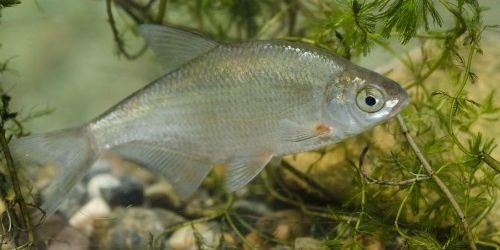
The Silver bream belongs to the Cyprinidae family. The usual size of the Silver bream is 20 to 30 cm and weighs about 200 g. The largest specimens can reach 35 cm. The life span of the Silver bream is about 10 years and it breeds from May to July. The female lays 20,000 to 60,000 eggs. It can be fished all year round. The Silver bream (Blicca bjoerkna) has a high, laterally flattened body, with a bushy back, characteristic of breams and accentuating with age. The head of this bream is small in relation to the size of its body but its eye is quite large, compared to its common cousin. Its snout is short and its mouth is oblique downwards, a characteristic common to fish seeking food on the bottom. The mouth is protractile (it unfolds forward) and free of barbells, surrounded by thick lips. The Silver bream is characterized by a long anal fin with between 22 and 26 rays, although shorter than the fresh water bream (26 to 30 rays). The dorsal fin of the Silver bream is short and high. The caudal fin is strongly indented. The Silver bream has a silvery coloring on the sides and belly, with a dark greyish-green or olive-colored back. The pelvic, pectoral and anal fins have an orange-red color. This last coloring can affect the whole stomach in older Silver breams.
The Silver Bream is a famous fish you can catch in East Putney.The Ide fish
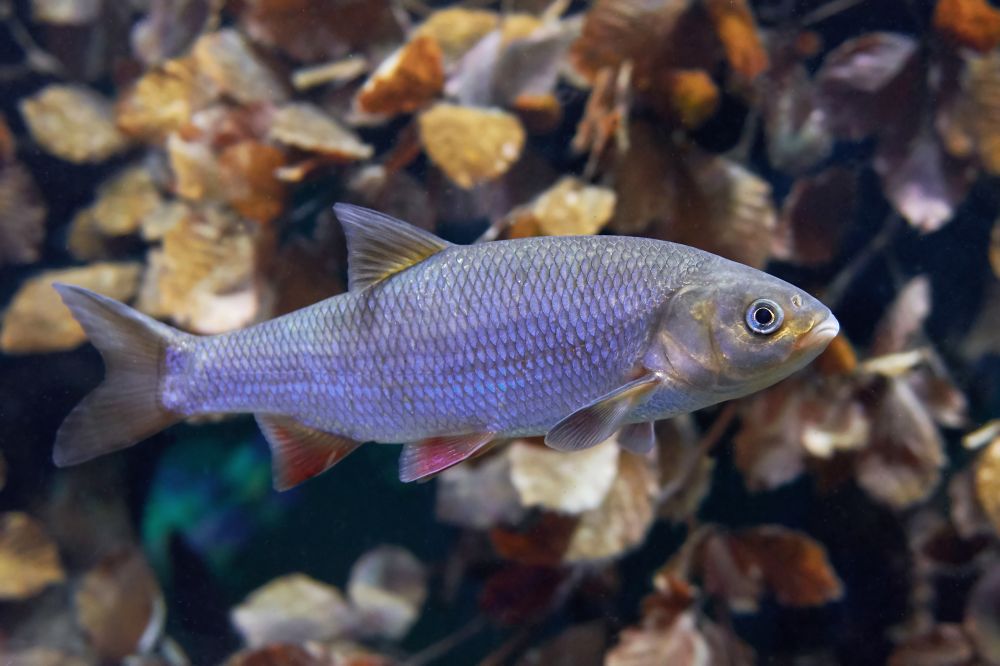
The Ide fish belongs to the Cyprinidae family. Its size is generally between 30 and 50 cm but this fish can reach a maximum length of 80 cm for a weight of 5 kg and an age of nearly 20 years. Spawning takes place from March to April. Females lay between 60,000 and 160,000 eggs. The fishery is open from June to March. The body is long and laterally compressed with a terminal mouth pointing upwards. The head is strong with a small mouth, obtuse snout and yellow eyes. The back is rounded. The anal fin has a concave rear edge. The back and upper part of the head are greyish-green to brown; the yellowish-brown flanks have silvery or golden reflections; the belly is whitish. The fins are dark except for the pelvic, ventral and anal fins which are frankly red. In older and larger specimens, the body color may turn yellow/bronze.
The Ide fish is a famous fish you can catch in East Putney.Bitterling Fish
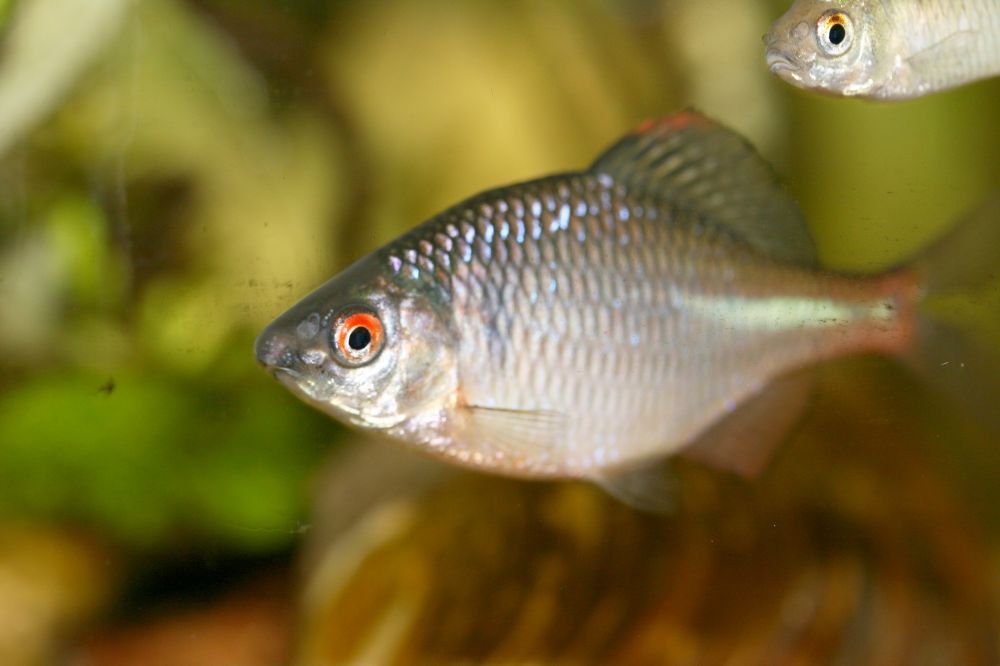
The Bitterling fish is a freshwater fish and belongs to the Cyprinidae family. Its scientific name is Rhodeus Amarus. The current size of the bitterling fish is 5-6 cm. Some individuals can reach a maximum height of 11 cm and a weight of 10 g. This species is one of the smallest Cyprinid in Europe. It lives on average from 2 to 3 years. The spawning period is between April and June. It lays 40 to 100 oocytes. This fish is easy to catch due to its small size. The bitterling is a small fish whose body is high and laterally compressed. The lateral line is short or incomplete. The scales on the back have a grey-green coloring. The sides are clear with silvery reflections. During the breeding period the silver coloration changes to a pink to bright red color with a dark blue sideband. Sexual dimorphism occurs between the male and female during reproduction. A 5 to 8 mm laying tube (ovipositor) develops in the female, which allows her to lay her eggs in the gill cavity of freshwater mussels. The male has a higher body than the female and its colors become brighter during the breeding season. The bitterling fish's eyes are quite large. Its mouth is small, oblique and the upper jaw protrudes beyond the lower jaw. The anal and dorsal fins have a short base and 8 to 10 branched rays.
Bitterling Fish is a famous fish you can catch in East Putney.The Pike Fish
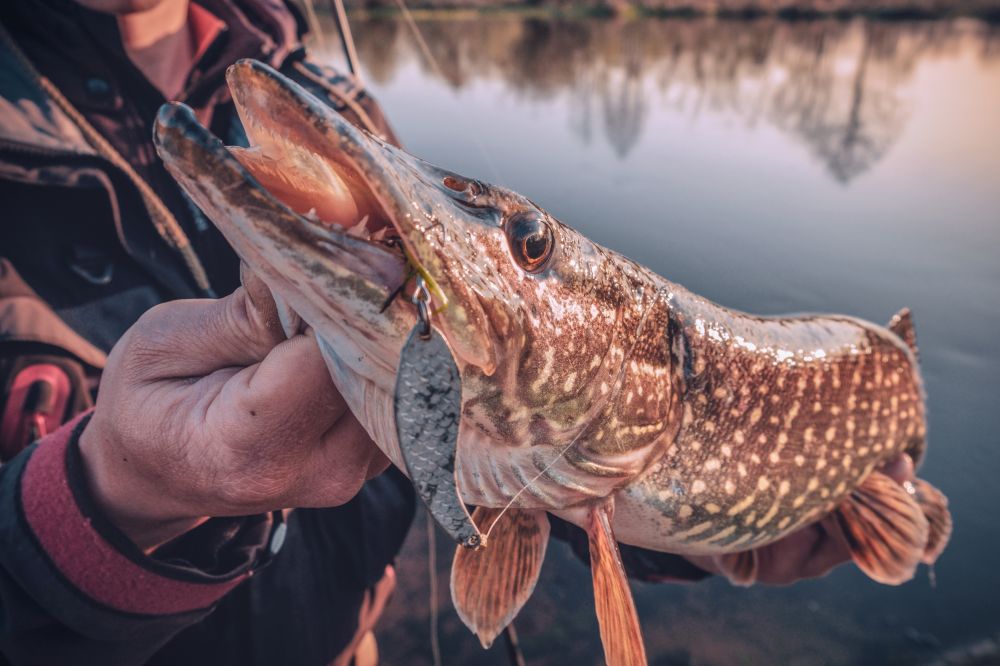
The Pike fish belongs to the Esocidae family. Pike can reach 1.30 m and weigh 25 kg. The current capture size is 50 cm for a weight of 1 kg. Females are commonly larger than males. The longevity is 10 to 14 years for males and 20 years (maximum 30 years) for females. Breeding takes place from February to May. The female lays 15,000 to 45,000 eggs per kg of weight. It is caught from June to December. This species is identifiable by its shape as a rifle bullet. The odd fins are at the back of the animal (allowing a sprinter propulsion). The characteristic head looks like a duck's beak. The mandible is longer than the upper jaw. The color varies from light green to black depending on the dominant color of the colonized habitats. The sides are lighter with darker transverse bands. During growth, the oblique stripes of young people give way to horizontal lines.
The Pike Fish is a famous fish you can catch in East Putney.The Salmon fish
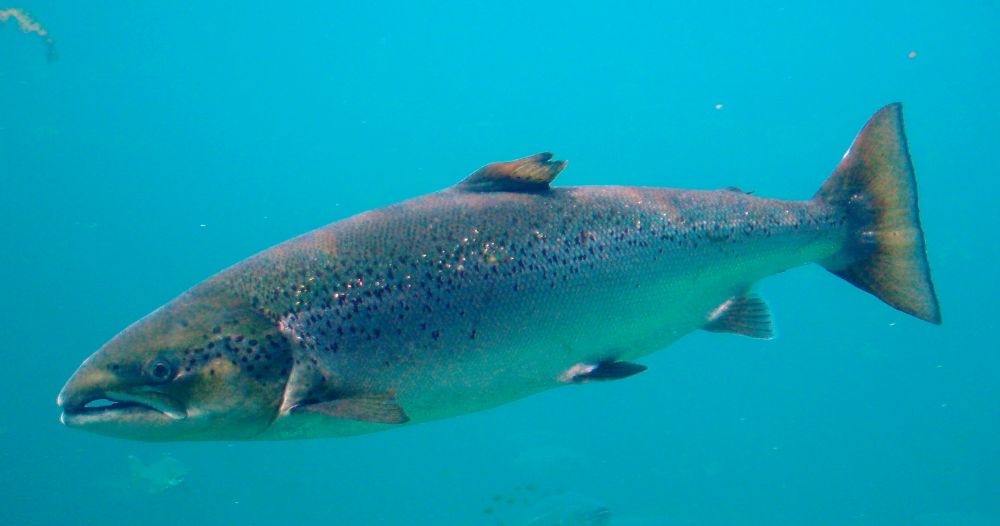
The Salmon fish belongs to the Salmonidae family. It can reach a maximum weight of 47 kg for a height of 1.5 m. The current size of the salmon is 50 to 70 cm, with a weight of 2.3 to 9.1 kg. It can reach a maximum weight of 47 kg for a height of 1.5 m. The current size of the salmon is 50 to 70 cm, with a weight of 2.3 to 9.1 kg. Spawning season is in October-November. Fertility is 1,500 and 1,800 eggs per kg of weight. It is fished in March in October. Salmon have a hydrodynamic and powerful body. The caudal peduncle is elongated and narrower than in trout, with which salmon share many characteristics. The mouth does not extend beyond the plumbing of the posterior edge of the eye. Adults have sexual dimorphism in the muzzle. Females have a rounded snout, while males have an elongated snout and their jaws bend sharply as they age, giving them the name of becard. The caudal fin is fairly indented, with a concave posterior edge and well defined tips. The adipose fin characteristic of Salmonids is present in salmon. The livery is different depending on the reproductive stage of the individual. The parr have 8 to 11 dark-colored vertical bars on the sides. The smolt and the adult have a silvery livery with black cross-shaped punctuation above the lateral line. At the time of reproduction, the male is adorned with bright colors.
The Salmon fish is a famous fish you can catch in East Putney.Our fishing forecast of East Putney indicates the best time to go fishing in this city.
Our fishing forecast of East Putney indicates the best time to go fishing in this city.
Our fishing forecast of East Putney indicates the best time to go fishing in this city.
